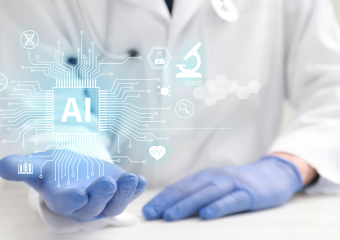Revolutionize Your Business with AloT: The Ultimate Platform for Smart Integration
Revolutionize Your Business with IoT: The Ultimate Platform for Smart Integration
Introduction to IoT: The Future of Business Integration
In today’s rapidly evolving digital landscape, businesses are constantly seeking innovative ways to streamline operations, enhance productivity, and gain a competitive edge. One technology that has emerged as a game-changer in this regard is the Internet of Things (IoT). IoT refers to the network of interconnected devices, sensors, and software that enables the exchange of data and communication between physical objects. This technology has the potential to revolutionize the way businesses operate, offering unprecedented opportunities for smart integration and automation.
Benefits of IoT for Business Efficiency and Productivity
The adoption of IoT in business environments brings forth a multitude of benefits, ultimately leading to enhanced efficiency and productivity. Firstly, IoT enables real-time monitoring and data collection, allowing businesses to gain valuable insights into their operations. For instance, in the manufacturing industry, IoT sensors can be used to monitor equipment performance, detect anomalies, and predict maintenance needs, reducing downtime and optimizing production processes. According to a study by McKinsey, IoT adoption in manufacturing can lead to a 20% increase in overall equipment effectiveness.
Furthermore, IoT facilitates seamless communication and collaboration between different departments and stakeholders. By integrating various devices and systems, businesses can automate routine tasks, streamline workflows, and eliminate manual errors. For example, in the retail sector, IoT-powered inventory management systems can automatically track stock levels, trigger reordering, and provide real-time updates to both suppliers and store managers. This not only improves inventory accuracy but also ensures timely replenishment, reducing stockouts and improving customer satisfaction.
Implementing IoT: Key Considerations and Best Practices
While the benefits of IoT are undeniable, implementing this technology requires careful planning and consideration. One key consideration is data security. With the vast amount of data being generated and transmitted through IoT devices, businesses must prioritize robust security measures to protect sensitive information. This includes implementing encryption protocols, regularly updating firmware, and conducting thorough vulnerability assessments.
Another crucial aspect is scalability. As businesses grow and expand, their IoT infrastructure must be able to accommodate increasing device connectivity and data volume. Therefore, it is essential to choose a flexible and scalable IoT platform that can seamlessly integrate with existing systems and support future growth.
Additionally, businesses should prioritize interoperability when selecting IoT devices and solutions. The ability to connect and communicate with different devices and systems is crucial for achieving seamless integration and maximizing the benefits of IoT. Adopting industry-standard protocols and ensuring compatibility between devices from different manufacturers is essential to avoid vendor lock-in and enable future expansion.
Case Studies: How IoT Transformed Businesses Across Industries
Numerous businesses across various industries have already harnessed the power of IoT to revolutionize their operations. One notable example is General Electric (GE), which implemented IoT in its aviation division. By equipping aircraft engines with IoT sensors, GE was able to collect real-time data on engine performance, fuel consumption, and maintenance needs. This data-driven approach allowed GE to optimize engine performance, reduce fuel consumption by up to 15%, and proactively schedule maintenance, resulting in significant cost savings and improved operational efficiency.
Another example is the healthcare industry, where IoT has revolutionized patient care. Hospitals are leveraging IoT devices to monitor patients remotely, track vital signs, and detect early warning signs of health deterioration. This enables healthcare providers to deliver proactive and personalized care, reducing hospital readmissions and improving patient outcomes. According to a report by Market Research Future, the global IoT healthcare market is expected to reach $136.8 billion by 2021.
In conclusion, IoT presents a tremendous opportunity for businesses to revolutionize their operations through smart integration and automation. By leveraging real-time data, seamless communication, and automation capabilities, businesses can enhance efficiency, productivity, and customer satisfaction. However, successful implementation requires careful consideration of factors such as data security, scalability, and interoperability. With the right strategy and a robust IoT platform, businesses can unlock the full potential of IoT and stay ahead in today’s digital age.




